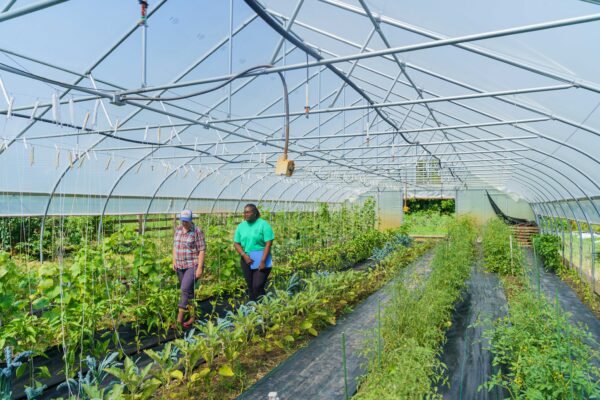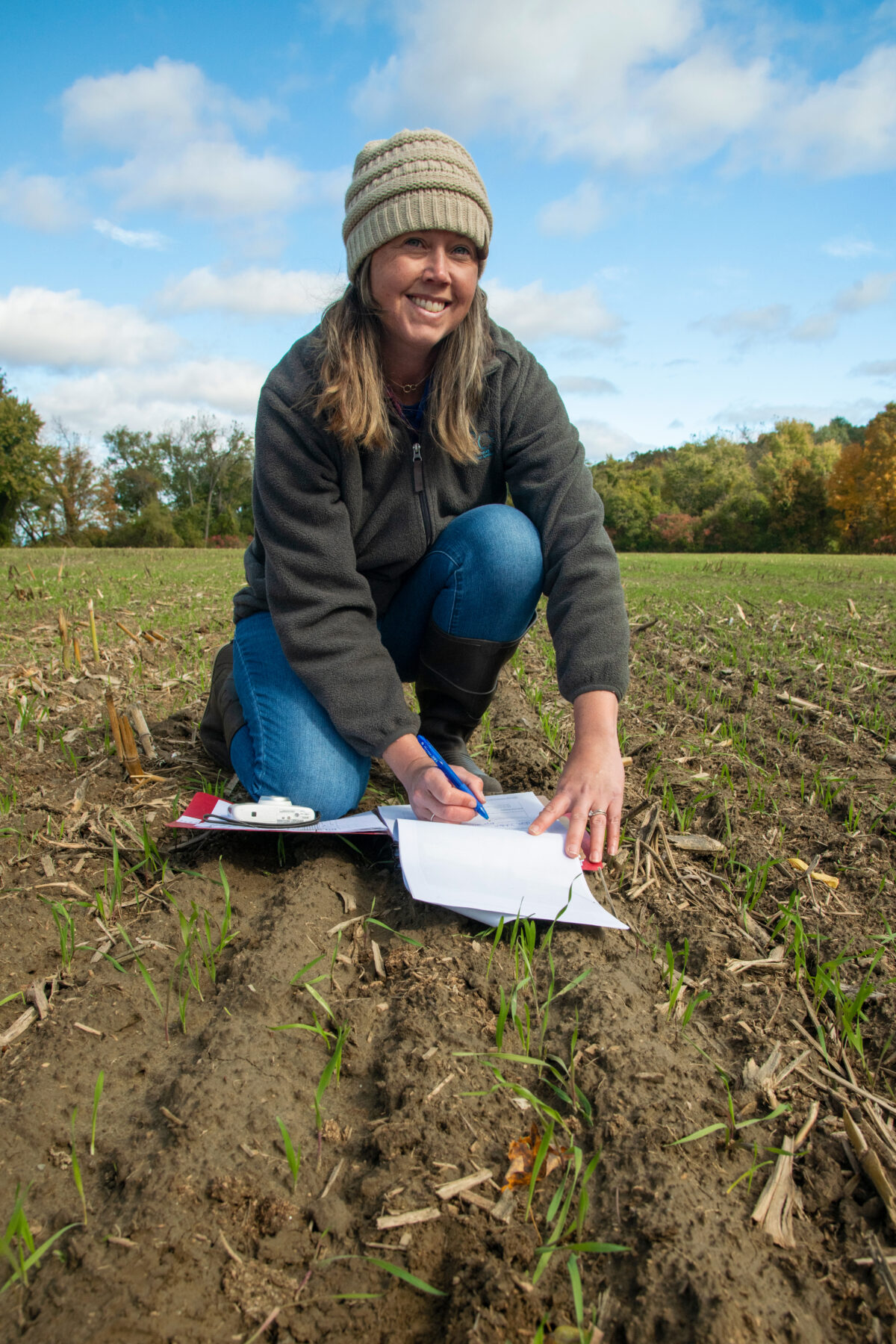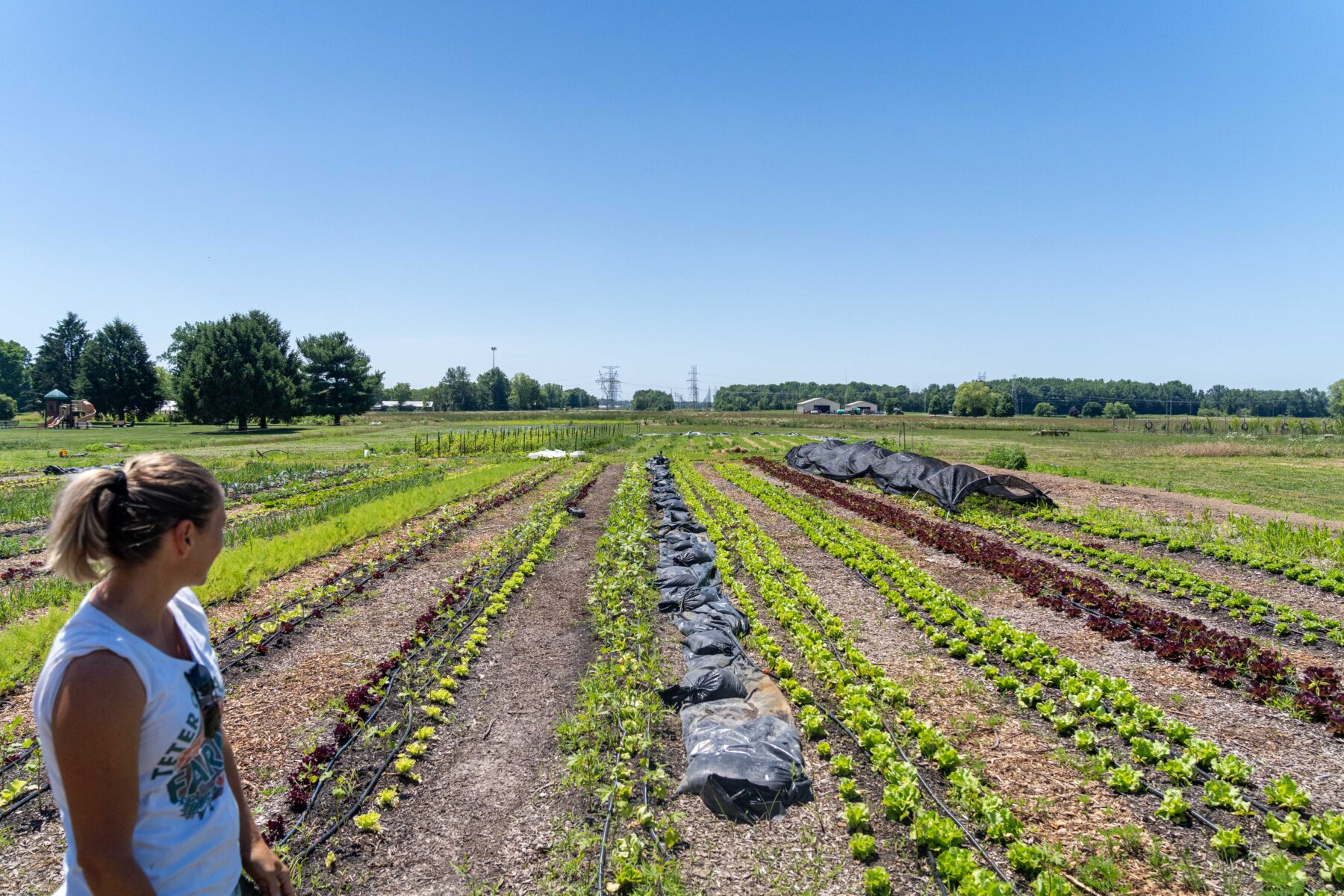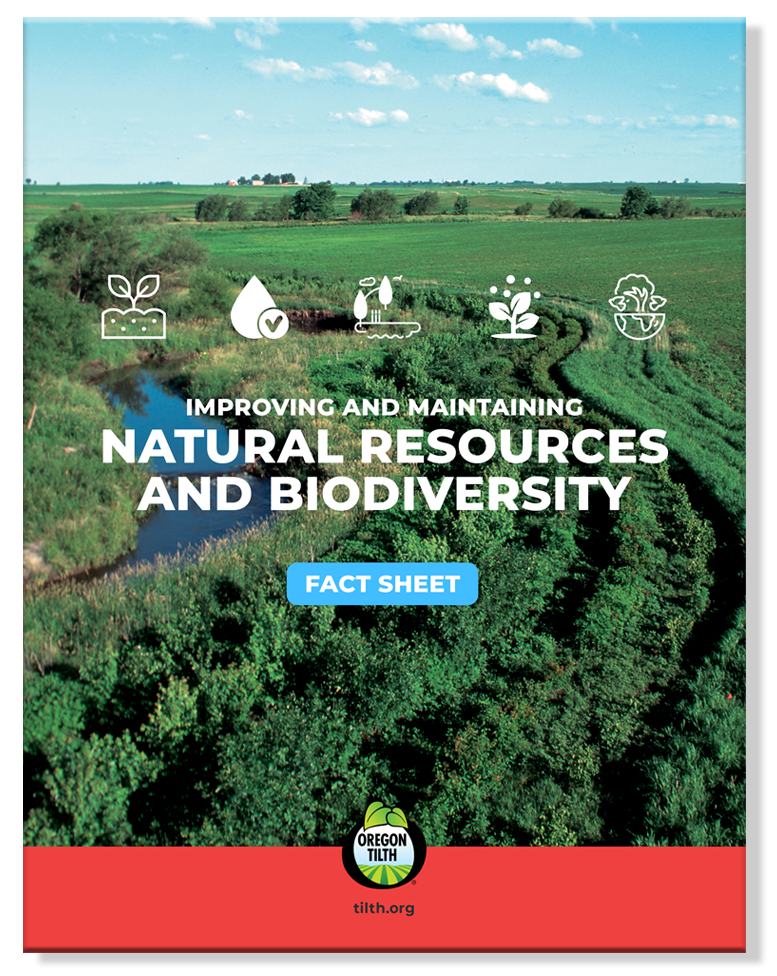
Supporting Conservation
Oregon Tilth believes conservation-minded agriculture provides environmental and financial benefits that make a case for a better food system. We bring together farmers and researchers, using data to sharpen farm strategies that benefit people and the planet. Our goal is to link farmers to resources — model conservation production practices that enhance natural resources, protect biological diversity, and provide economic viability.

Technical Assistance
Oregon Tilth formed a contribution agreement in 2010 with the United States Department of Agriculture’s Natural Resources Conservation Service (NRCS) to increase conservation on organic farms. Oregon Tilth has since had the opportunity to work with NRCS on a variety of projects and initiatives across the country.
Helping NRCS staff better understand organic systems, regulations, and practices supports the ultimate objective of increasing support for organic producers in meeting or exceeding their conservation goals. We have leveraged this knowledge of on-farm conservation to create resources for farmers, like this Improving and Maintaining Natural Resources and Biodiversity Fact Sheet. Our partnership with NRCS directly contributes to our mission of sharing knowledge and supporting social and environmental sustainability in our food system.

NRCS Support for On-Farm Conservation
The USDA Natural Resources Conservation Service (NRCS) provides technical know-how and funding to support on-farm conservation for organic and transitioning producers. NRCS assistance aligns well with USDA Organic regulations and can help producers meet organic certification requirements, including:
- Soil health: cover crops, conservation crop rotation, compost, biochar, nutrient management and more.
- Natural resources and biodiversity: hedgerows, buffers, wildlife habitat, plantings for pollinators, and more.
- Livestock practices: pasture and grazing management, diverse pasture plantings, fencing, walkways, watering facilities and more.
- Water conservation: irrigation systems, water catchment, wetland enhancement and more.
NRCS has two core programs and a NEW Organic Transition Initiative that align well with organic regulations and help producers support natural resources and biodiversity.
Environmental Quality Incentives Program (EQIP)

EQIP provides financial support and technical assistance to implement conservation practices on working agricultural land. Within EQIP, the Organic Initiative is available to certified organic farms, transitioning to organic farms, and farms exempt from organic certification. The Organic Initiative (and the rest of EQIP) offers support for practices that are key components of organic farms. Examples include establishing buffer zones, planting pollinator habitat, improving cropping rotations, creating a rotational grazing system, and building nutrient management.
Conservation Stewardship Program (CSP)

CSP offers technical assistance and payments for actively managing, maintaining, and expanding conservation activities. These include cover crops, rotational grazing, ecologically-based pest management, and buffer strips. CSP does not offer a funding pool specific to organic producers. Still, many of the enhancements (i.e., reducing tillage) are relevant to organic production.
NEW NRCS Organic Transition Initiative (OTI)

Part of the larger USDA Organic Transition Initiative, NRCS’s OTI compliments the Transition to Organic Partnership Program (TOPP) by providing direct funding and support to transitioning producers. Through the new Organic Management Standard, the NRCS OTI supports conservation activities and practices required for organic certification and may provide foregone income reimbursement for dips in production during the transition period.

Getting Started
Contact your local NRCS office. Staff will walk you through the entire process and visit your farm to discuss options. Sign-up is open year-round, deadlines to be considered for funding in a given year vary.
A few considerations for when you reach out:
- Contact your local NRCS office when you have an opening in your schedule. The process takes time. We suggest contacting NRCS in the offseason.
- Deadlines for NRCS programs vary by year and state. It’s best to have your paperwork completed in advance of the deadlines.
- Some NRCS staff may not be experts in USDA organic regulations. Get approval from your certifier before making changes on your farm if the activities aren’t in your OSP.
- Check out NRCS’s brochure to learn a bit more about language and terms used at NRCS.
Get technical support and expertise
Interested in having Oregon Tilth provide a training, workshop or webinar? Want a staff member to attend and present at an upcoming event?
Send us an email at edteam@tilth.org.

